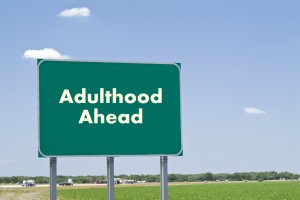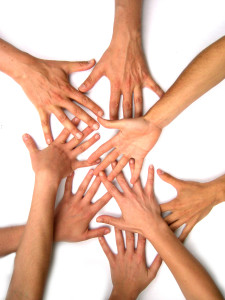 Adolescents and Emerging adults need to know what is expected of them as they approach adulthood. They are constantly asking themselves and others, “Are we there yet?” Just as mile markers along the interstate can monitor your progression towards your destination, so can rites of passage encourage emerging adults by confirming that they are going the right way.
Adolescents and Emerging adults need to know what is expected of them as they approach adulthood. They are constantly asking themselves and others, “Are we there yet?” Just as mile markers along the interstate can monitor your progression towards your destination, so can rites of passage encourage emerging adults by confirming that they are going the right way.
Unfortunately, many of our culture’s rites of passage have been lost or outdated in our fast-paced, changing society. There is a desperate need for rites of passage to be reinvented and reintroduced within Western culture. Ronald Grimes declares the current lack of rites of passage to be an urgent global problem: “The absence of rites of passage leads to a serious breakdown in the process of maturing as a person” (Grimes). Ronald Grimes, Professor of Religion and Culture at Wilfrid Laurier University says that transitions between life stages, “can be negotiated without the benefit of rites, but in their absence, there is a greater risk of speeding through the dangerous intersections of the human life course.” As adolescents take steps towards maturity, their steps need to be noticed and celebrated by the community around them.
Rites of passage show the pathway towards adulthood, and can serve as motivators towards adulthood.
Many adolescents are motivated by milestones that require defined work (for example, obtaining a driver’s license or graduating from high school). Few adolescents complain about practicing driving, or memorizing traffic laws because they know that they will soon receive the legal right to drive and the freedom that comes with it. Emerging adults need to have definable achievements and freedoms before them that will motivate them to push forward.
While some rites of passage are earned, others happen naturally (the beginning of puberty, or reaching legal drinking age). These “natural” rites of passages within our society have been minimized, or celebrated in unhealthy ways. Without adults taking the initiative in these areas, rites of passage have been left to be developed by those experiencing them. Grimes says, “Initiation in Western society often takes this postmodern, peer-driven form—adolescents initiating adolescents, sometimes compulsively, unconsciously, and violently” (Grimes). I believe that this problem is illustrated in the movie 21 and Over. As a young man approaches his 21 birthday, his friends believe it is their moral obligation to give him the experience that our culture requires – one filled with inappropriate and destructive behavior.
Rites of passage signal changes within the life of the adolescent to their community.
“Experiencing a rite of passage allows young people to let go of childlike behavior and to begin taking on adult responsibilities and their accompanying consequences” (Moore). Rites of passage signal to the individual and the community that they have changed, and are ready for autonomy and responsibility. The community needs to be aware because their expectations on the individual changes, as well as their role within that community.
 Rites of passage should be celebrated within a community.
Rites of passage should be celebrated within a community.
Rites of passage are not important solely for the sake of the individual, but are beneficial to all involved. I have personally been blessed by playing a role in the rites of passage for individuals. It is an affirmation to all invited of your impact on the life of the individual.
There is a need for our families and faith communities to reintroduce rites of passage into today’s culture. What way have you or someone you know used rites of passage with their family? What way has your church used rites of passage with the community?
Resources
Grimes, Ronald. Deeply into the Bone.
Moore, Walker. Rite of passage parenting: Four essential experiences to equip
your kids for life.






Pingback: EA Resources | Hosting a Meaningful Graduation Party: 8 Short and Sweet Pieces of Advice
Pingback: EA Resources | Maxing the Memories: Solid Ideas for Creating Rites of Passage for Students